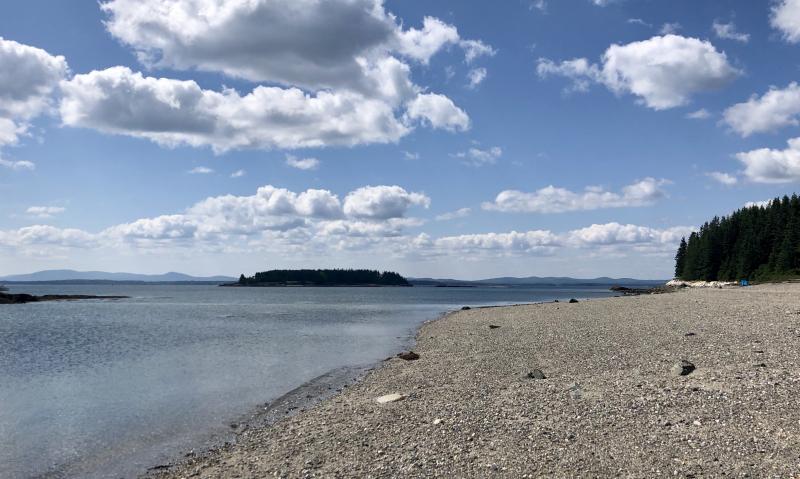The Gulf of Maine is one of the fastest-warming ocean ecosystems on the planet, according to the Gulf of Maine Research Institute. Over the last 30 years, the Gulf of Maine warmed at a rate of 0.06°C per year (0.11°F per year) — more than three times the global average, the Portland-based nonprofit said Aug. 30, in a news release.
“Over the last 15 years, this region has warmed at more than seven times the global average rate,” the release said. “At both time scales, the Gulf of Maine warmed faster than 99 percent of the global ocean.”
This year has been especially warm, and scientists at GMRI are now saying the Gulf of Maine officially experienced its second warmest-ever day on August 8. On that day, the average sea surface temperature in the Gulf of Maine reached 20.52°C (68.93°F), as measured by satellites operated by NOAA and NASA. This is only 0.03°C (0.05°F) shy of the record set in 2012.
Moreover, this year has officially crossed the threshold for what scientists call a marine heatwave.
This phrase describes an area of the ocean that experiences temperatures above the 90th percentile for more than five consecutive days.
According to this definition, the current Gulf of Maine heatwave started on July 20 and has lasted more than a month.
“However, this statistic downplays what’s been going on this year; only 40 days in 2018 did not reach heatwave levels, and you have to go back to early September of 2017 before there are 17 consecutive days below the 90th percentile,” the release said.
“We’ve set 10 daily temperature records this summer, after setting 18 this winter,” said GMRI Chief Scientist Dr. Andrew Pershing, in the release. “We’ve had to add new colors to our temperature illustrations to reflect just how warm the Gulf of Maine has been this year.”
The idea of a heatwave in the ocean is a relatively new concept. GMRI scientist Kathy Mills and Alan Pearce, of Australia, independently applied the term “heatwave” to describe extreme temperature events in the North Atlantic in 2012 and off Western Australia in 2011.
Since then, a group of scientists, led by Alistair Hobday of Australia’s CSIRO, developed the previously referenced heatwave definition.
Although the concept of a marine heatwave has only recently been defined, the Gulf of Maine is already pushing its boundaries. In 2012, only six days fell below the 90th percentile. In every year since 2012, the Gulf of Maine has experienced more than 150 of these heatwave-level days. In every year since 2010, the Gulf of Maine experienced more than 80 such days. This year, the Gulf of Maine has already spent 180 days above the 90th percentile, and we’re entering the fall period, which has been especially prone to heatwaves.
Why is the Gulf of Maine warming so rapidly?
The Gulf of Maine sits in a corner of the ocean where cold waters from Canada (and ultimately, the Arctic) meet with warm waters from the south. A slight change in these currents can mean a big difference in temperatures, and this region is experiencing more than a slight change. Global warming is causing the glaciers in Greenland to melt. As this relatively fresh water dumps into the North Atlantic, it disrupts the entire circulation of the North Atlantic, pushing more warm water into the Gulf of Maine. It also pushes more warm water into the Barents Sea, north of Norway, another region that has been very warm this year.
“This year really brings home the connection between Atlantic circulation and the temperatures in the Gulf of Maine,” said Pershing. “The satellite images from this year show a persistent mushroom-shaped blob of very warm water at the mouth of the Northeast Channel — a deep gully that leads into the Gulf of Maine. Essentially, shifting ocean currents are functioning like a hot water tap that dumps directly into the Gulf of Maine.”
The Gulf of Maine Research Institute pioneers collaborative solutions to global ocean challenges. Located in Portland, GMRI is dedicated to the resilience of the Gulf of Maine ecosystem and the communities that depend on it. For more information, visit www.gmri.org


























